celestepecks's blog
You can concider toothache as a part of dental emergencies. A toothache is never a good sign because it could be a sign of many different problems, including tooth decay. Additionally, while you can manage some toothaches without needing emergency care, some symptoms, including swelling, call for prompt attention. Avoid taking aspirin, and other medications, as meeting with the affected gums might cause the nerve or tissue to burn. Alternatively, use a cold compress outside your cheek and make an emergency dental clinic call.
broken or knocked-out tooth
Like how you would handle a broken or chipped tooth, pick up the tooth by the crown and only rinse the root if it is unclean. According to dental emergencies Houston, Avoid rubbing and removing connected tissue fragments if possible. Depending on the damage, you can replace the tooth, but be careful not to push it into the socket. Your chances of preserving and reattaching a fallen tooth increase the faster you do it, ideally within an hour. Fractured or chipped teeth
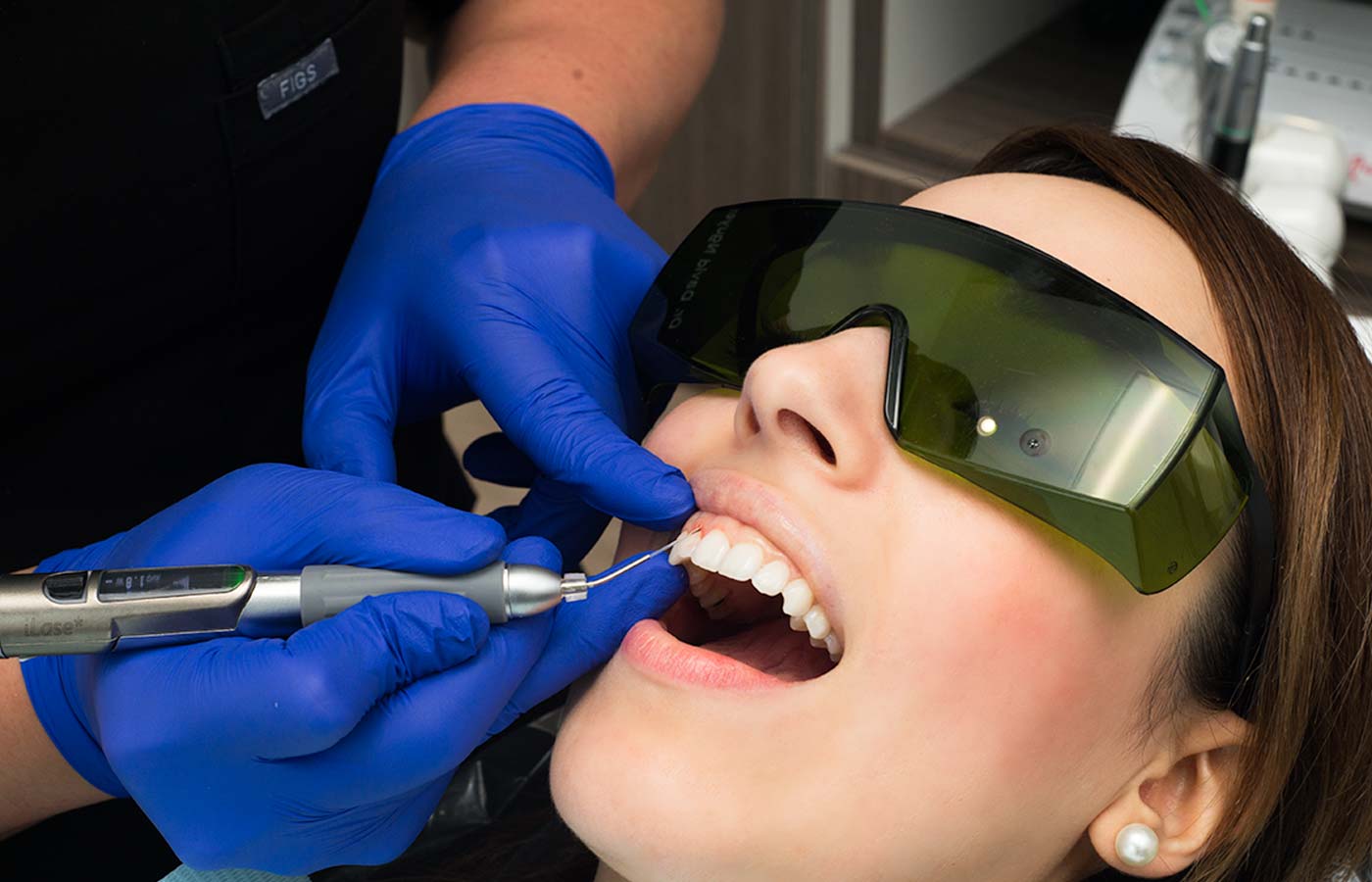
Fractured or chipped teeth
Did you bite down a little too firmly? A cracked or broken tooth can hurt and spoil your lovely smile. You should use warm water to rinse your mouth and cover the bleeding area with gauze. Then, to lessen swelling and ease pain, apply a cool compress to the area of your face closest to the broken or cracked tooth. Your emergency dental Houston tx dentist will urge you to avoid biting down on hard or crunchy foods and engaging in sports or other activities that could chip or shatter teeth while seeking emergency dental care.
Lost crown or filling
The best possible look and function are returned to previously harmed teeth with crowns and fillings. To prevent further damage or reinfection, you must treat these as soon as they break. While you are waiting for emergency dental care, try this temporary solution. To avoid damaging the tooth, fill the cavity with sugarless gum but do not attempt to repair it yourself. To reapply for the restoration or receive a new crown, you may place it in a zip-top bag and bring it to your emergency dental care Houston office.

Abscess
Mouth infections are problematic, particularly near a tooth's root or between the gums and teeth. These can infect surrounding teeth, gum tissue, and the entire body if you leave them untreated. Uncertain whether you have an abscess? Look for a sore, pimple-like bump on your gums. Call the dental office open on Saturday immediately for emergency care to prevent worsening oral health issues. For momentary convenience, rinse your mouth with a mild water solution and put ice on the painful spot.
Pain and bleeding following tooth extraction
Although some post-operative discomfort and bleeding are common, it's time to visit your dental office with Saturday hours if they continue even an hour later. In the interim, apply gentle pressure by biting down on a thick gauze pad placed over the extraction site. Avoid drinking, eating, and sucking. You should also avoid spitting, smoking, and spitting.
Conclusion
In the above-given information, we discussed some dental emergencies requiring medical attention. For more valuable information, please visit dentistopenonsaturday.com.
Article Source : https://www.bloggingbeep.com/what-are-the-common-dental-emergencies/
Tooth decay, gum diseases, and a knocked tooth are some most common dental emergencies. In contrast, prevention with good oral care is the best way to keep your teeth healthy and hygienic. Knowing what an emergency dentist does can prevent long-term damage. But the question what is the most common dental emergency, and how do you deal with them? With fast and immediate response and treatment, you can prevent long-term damage and restores good dental health.
Therefore if you suffer from instant tooth decay, gum disease, and a knocked tooth, you should consider visiting dental emergencies services for proper treatment and diagnosis of the issue.
Toothache
Pain and sensation are never good signs: they indicate several conditions, including tooth decay and cavities. Moreover, some toothaches are manageable without emergency dental services. You should avoid certain medications like taking aspirin or another painkiller because they can burn the affected gums' tissues. Instead, you should put a cold compress on the outside of your cheek and call your emergency Laser Dentistry.
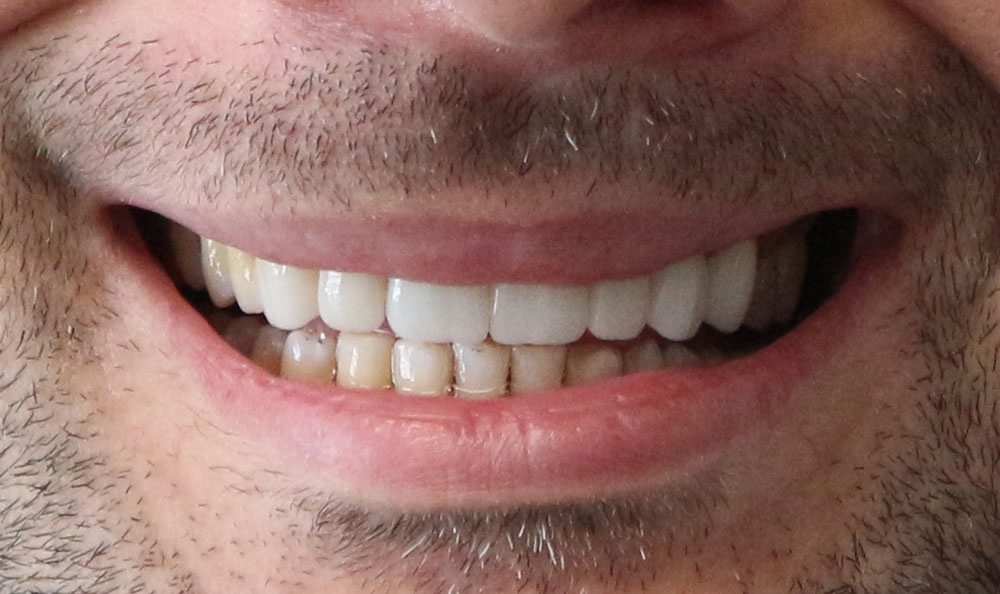
Chipped or broken teeth
Did you bite down too hard on some hard material? Not only chipped or broken teeth ruin your perfect smile, but they also hurt you continuously while chewing and eating food. In such conditions, you should rinse your mouth with warm water and add a piece of gauze to cease the bleeding. And apply a cold compress on the part of your face where the tooth is broken or chipped to reduce swelling and relieve pain.
While seeking emergency dental care, your dentist recommends you be cautious of biting down crunchy foods, sports, and other physical activities that can cause teeth to break or chip down.
Knocked-out tooth
Similarly, like chipped or broken teeth, you should pick the tooth with a crown and rinse the root if it is dirty. Otherwise, avoid scrubbing and removal of attached fragmented tissues. Depending on the injury, you might be able to put your tooth back in the socket. Ideally, within one hour, so you can save a knocked tooth and restore it in place. Furthermore, if you can't restore or reinsert back, then keep it in the bowl of milk with a pinch of salt. This will help you save your teeth from being extracted.

Lost filling or crown
Both crowns and dental filling store your damaged teeth back to the aesthetic appearance and functionality of the teeth. So when they break or come out, you'll need to get treated right away to avoid further damage to your restorative procedure. You should visit an emergency dentist or make a temporary fix while waiting for dental care: you can also place sugarless gum into the cavity but don't apply pressure to avoid damage. Also, you should put your dental appliance in a safe place and bring it to your dentist so they can reapply to be fitted with a new crown.
Conclusion
If you are suffering from chipped, knocked, or lost filling or crown, you should consider visiting an emergency dentist near me for thorough treatment and diagnosis of the issue.
Article Source : https://www.healthymindz.com/what-are-the-most-common-dental-emergencies/
Dental veneers are shells made of porcelain veneers or dental porcelain laminates. They are custom-made shells of tooth-colored material designed to cover the front surface of your teeth. A dentist uses them when your teeth' color, shape, size, or length changes.
What are the main types of Dental Veneers?
Dental veneers can be made from porcelain or resin composite materials. Also, porcelain veneers resist staining better than resin veneers. Also, they provide an original teeth-like appearance and functionality. Therefore you should consider visiting Emergency Dentist Houston to know what is best for you.
What Types of issues Do Dental Veneers Fix?
Dental veneers routinely fix:
- Discolored or stained teeth
- Root canal treatment
- Stains from tetracycline or other drugs
- Excessive fluoride use
- Large resin filling
- Worn teeth
- Chipped or broken teeth
- Uneven or misaligned teeth
- If you've gaps between the teeth
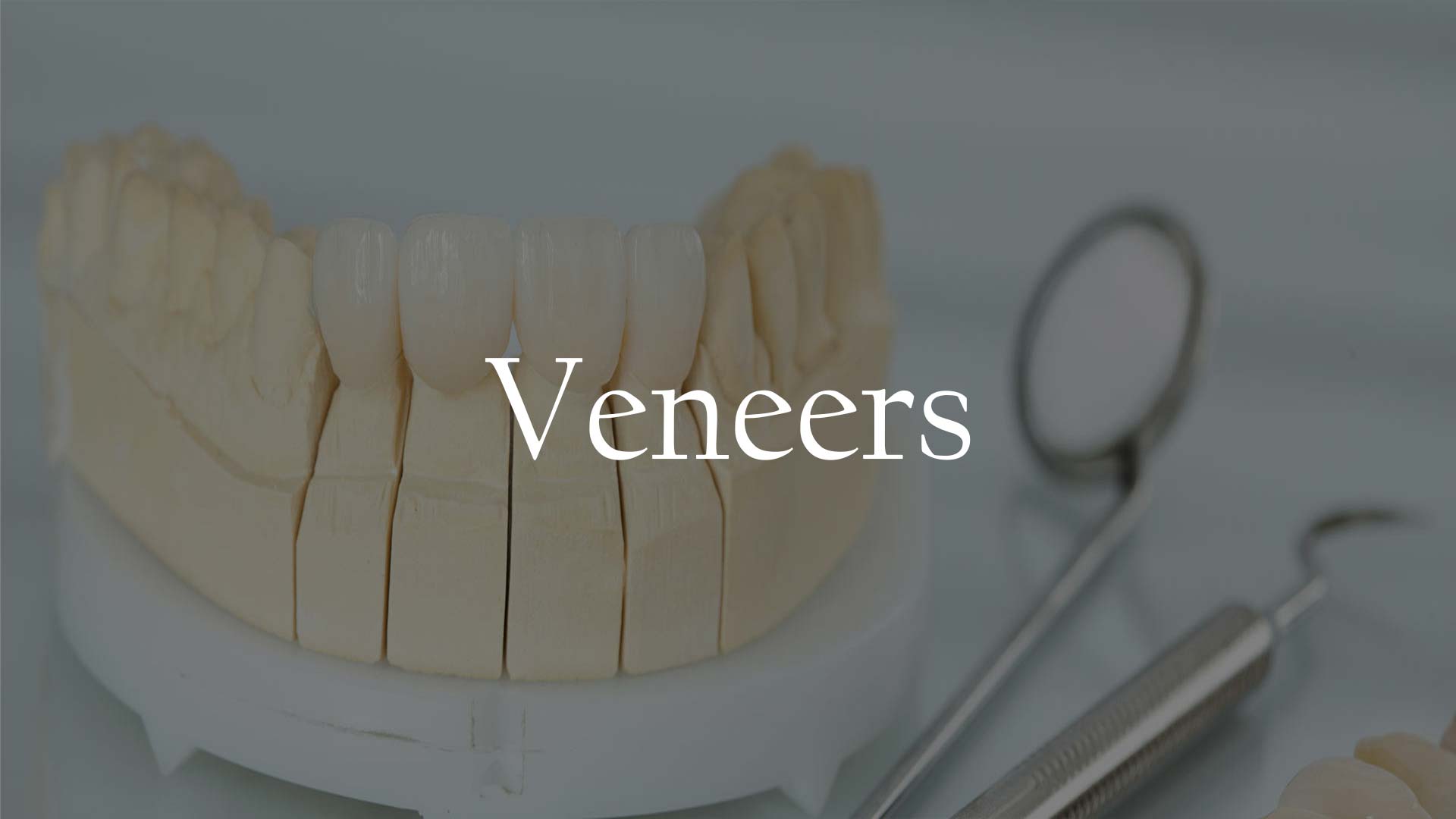
Dental Veneer Procedure
Getting dental veneers requires three dental visits, first for consultation, two for fabrication, and third for application of veneers. One or many teeth can undergo the veneer treatment at the same time.
Diagnosis and treatment planning
You will tell the dentist open on Saturday about the objective of the treatment or the result you wanted. During the appointment, a dentist will examine your teeth, make sure you are a good candidate for dental veneers, and discuss both pros and cons of the treatment. After that, they will Scan and take X-rays for the impression of your teeth and mouth.
Preparation
To prepare a tooth, your dentist will sharpen your teeth surface by removing a few layers of your teeth surface. You and your dentist will administrate local anesthesia to numb the area of your teeth. Next, they will use X-rays and digital scans to make a model for dental veneers. Veneers Houston takes 2-4 weeks to come back from the laboratory; meantime, your dentist uses temporary veneers to save your teeth impressions.
What are the Benefits of dental veneers?
- They provide an aesthetical and natural look.
- Porcelain doesn't damage gums.
- Porcelain veneers are stain-resistant.
- A dentist near me can blend them into the teeth's original color
- They generally don't require as much shaping as crowns, yet they are stronger and better functional.

What are the limitations of dental veneers?
- This is an irreversible process.
- Veneers cost you more as compared to resin bonding.
- Surfaces can not be repaired if they get chipped or cracked.
- Due to enamel trimming, you may start experiencing more sensitivity to cold and hot food or drinks.
Veneers may not exactly blend with your surrounding teeth and cannot be altered once it's in place. If you want teeth whitening, you should do it before the dental veneers.
Though unlikely, veneers can dislodge or fall off. To minimize the risk, you should not bite nails, chew pencils, ice, or other hard items that hurt your veneers or restorative procedure.
Conclusion
If you are suffering from stained, chipped, or knocked teeth, you should consider visiting a Dentist Open On Saturday Near Me for thorough treatment and diagnosis of the issues.
Article Source : https://www.techsmarttips.com/what-are-dental-veneers/
Consuming sugary foods and drinks or bad oral practices such as no brushing and flossing regularly can result in tooth decay or cavities. There permanently damage can cause:
- Visible holes in your teeth
- Brown or black stains
- Tooth Sensitivity
- Immserable pain
Also, a dental filling can replace a part of damaged teeth and prevent your teeth from further decay. Although fillings are permanent restorative materials, initially, Dentist Office Open On Saturday treats tooth decay with a temporary dental filling. This article will help you understand how long temporary filling lasts, the procedure, etc.
What’s a temporary filling?A temporary filling is a material your dentist uses to restore a damaged tooth. There is no permanent solution to save your teeth, and you’ll need a permanent solution so that they can replace a permanent filling material.
When are temporary fillings used?Dentists Open On Weekends uses temporary fillings material for specific conditions. This treatment of putting a temporary filling can be quicker than putting a permanent filling. So, suppose you have a cavity that causes immense sensitivity and severe pain. In that case, you’ll receive a temporary filling as an emergency treatment.
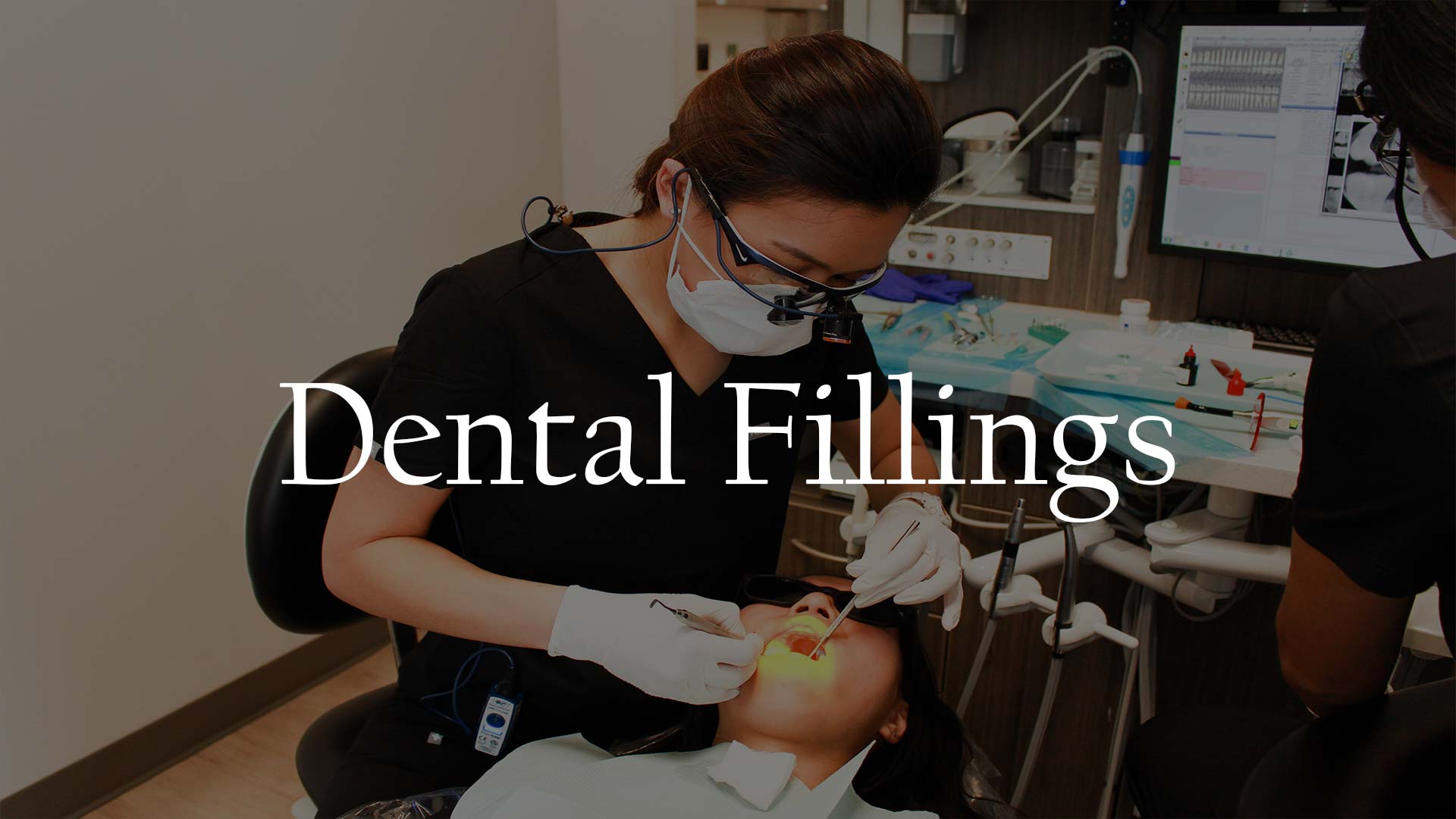
Your dentist might also put a temporary crown if a cavity is giant because the crown can protect your teeth until the crown is ready.
Temporary seal after a root canalIf a badly decayed tooth also requires a root canal treatment to remove bacteria from the tooth, the dentist saves it. A temporary filling can seal the roots or holes in teeth until further root canal sitting happens because it keeps food and bacteria from attacking the teeth again.
After the root canal treatment area heals, your dentist replaces the temporary filling with a permanent filling material.
Temporary medicated filling to settle sensitive nervesAnemergency dentist may put a temporary filling if a tooth is sensitive to hot and cold water or food. This will help settle the nerves and help the healing process before placing a permanent filling.
After this, your dentist reevaluates the tooth at a later appointment to ensure there will be no pain and you don’t need further treatment, like a root canal.

Since a temporary filling doesn’t last long, it’s made of softer material that’s easier to remove. Some materials may harden with saliva; here are some material items that are used as temporary filling material.
- Zinc oxide eugenol or zinc phosphate cement
- Cavit
- Glass ionomers
Permanent fillings often blend into the natural color of a tooth. Temporary filling, on the other hand, has a different color than the natural white color. This allows your dentist to easily locate the temporary filling while replacing it with a permanent color. A temporary might be bright white, grey, or white with a blue or pinking hue.
ConclusionIf you have pain and sensation due to a minor chipped or knocked tooth, you should consider visitingemergency dental care houston for a thorough checkup and treatment.
Article Source : https://www.transitsblog.com/what-are-temporary-fillings-and-why-is-it-used/
Have you ever had to wake up in the middle of the night to pain and sensitivity around your teeth? Untreated toothaches, extreme tooth decay, and even sensitive teeth are some common conditions people go through. Root canal treatment, also called endodontic therapy, is a common dental treatment for restoring the original dental look and functionality.
Root canal treatment is a virtually painless treatment involving removing infected or damaged pulp in the root canal cavity. Then they will clean the cavity and disinfect the places with dental filling material gutta-percha, a common glass polymer material used in root canal treatment to save the further tooth. Then they will apply sealant material to cover the filling material. Also, they will recommend a dental crown to enhance the durability of the damaged teeth. Here are some benefits of root canal treatment:
Prevents Tooth Loss
There are several ways of dealing a decayed or cavity teeth. Some prefer tooth extraction to eliminate tooth complexity and dental visits. This provides a permanent solution for further tooth decay and infection.
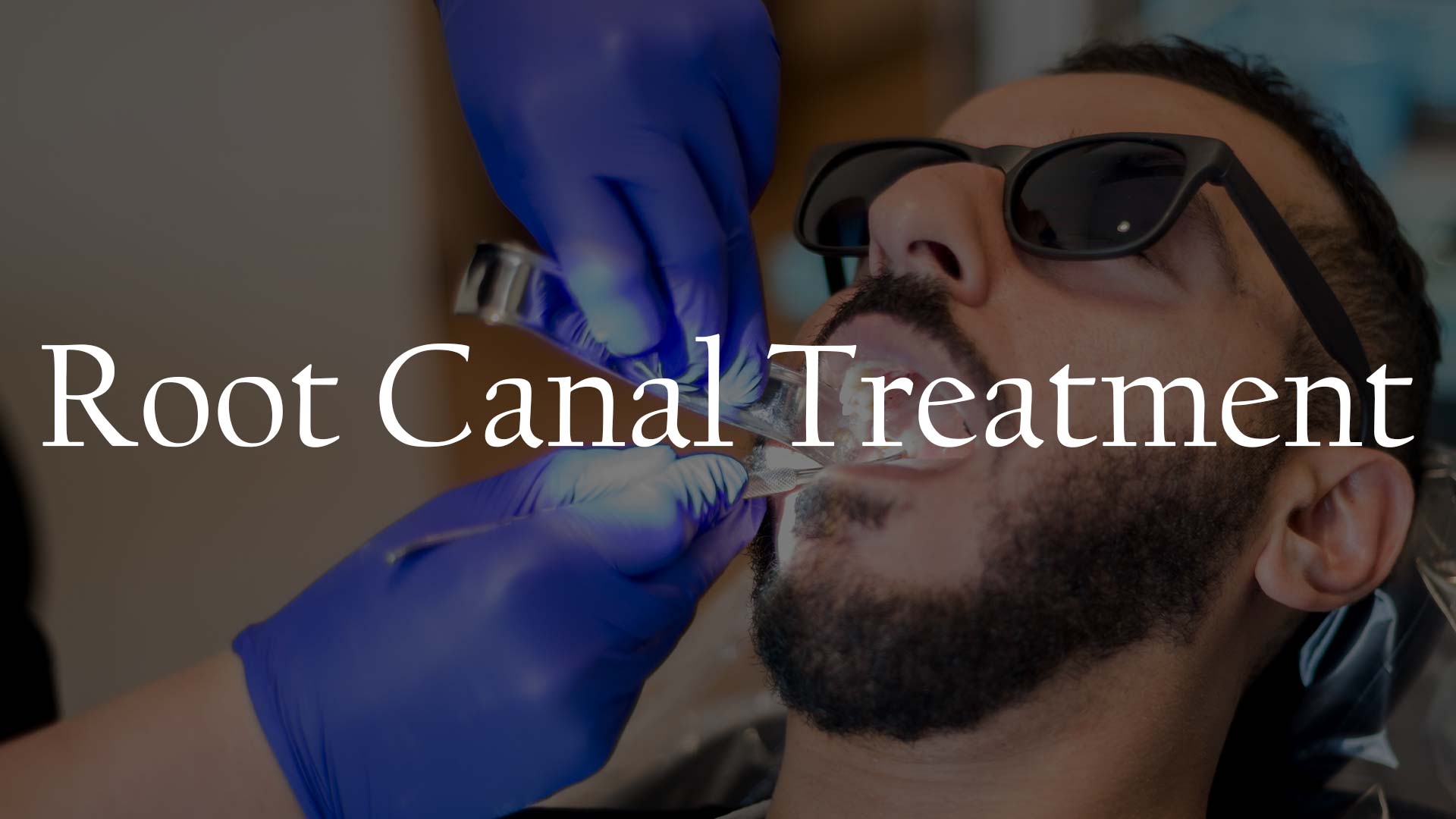
Tooth extraction, however, leaves a gap between the teeth and can cause misalign your jaws or makes tooth susceptible to fracture or surrounded teeth cover the gap. Therefore root canal is preferable to preserve the natural alignment of your teeth.
Prevents Infection of Neighbouring Teeth
Pulp infection is often the main cause of decay or cavities in your teeth. Infection of the pulp happens due to the accumulation of bacteria around the teeth or food particles stuck in your teeth.
So, the dentist open on weekends near me in houston uses root canal treatment to remove infected parts or pulp to prevent the growth and spread of the bacteria.
Boosts Teeth Aesthetics
A root canal treatment involves the removal of the infected pulp. Moreover, they will clean the affected area, fill the tooth with polymer material, or cover it with a dental crown.
Crowns are essential because they provide aesthetic and functional benefits to the treated teeth. It also increases the durability of your teeth, and your restorative treatment may last 10 to 20 years.
Prevents Jawbone Degeneration
A root canal treatment leaves infected teeth intact, unlike tooth extraction. With missing teeth or gaps, the jaws easily degenerate over time due to bacteria exposure to the site. Therefore root canals help prevent complications to the jawbone in the future. So you should consider visiting an Emergency dentist open Saturday for thorough treatment.

Boosts Oral and Overall Health
Extreme tooth decay and long-lasting toothaches are common dental conditions among individuals. They can cause pain, sensation, and sometimes, tooth loss. However, root canal treatment helps keep your teeth in good condition and prevent procedure such as tooth extraction.
Not only good oral health, but root canal treatment also boosts your overall health by preventing the conditions associated with poor oral health. Such as heart disease, respiratory or lungs infection, diabetes, and gastrointestinal infections.
Conclusion:
Suppose you suffer from cavities and tooth decay. In that case, you should consider visiting Dentist Office Open On Saturday Near Me in houston for root canal treatment to prevent your teeth from tooth extraction as well as infections.
Article Source : https://www.worldofarticles.com/what-are-the-advantages-of-a-root-canal/
Dental Hygiene can prevent and fight bad breath and gum diseases such as gingivitis and periodontal diseases. Therefore it's essential to maintain dental practices such as brushing and flossing twice a day and visit theLocal Dentist Open On Saturday for regular checkups two times a year.
Moreover, sometimes your dentist recommends a deep dental cleaning. There are several signs that you need Dental Teeth Cleaning, including bleeding gums, receding gums, and loosened teeth. Periodontal scaling or root planing is one of the most common techniques used in deep dental cleaning, but it has risks.
What are deep teeth cleaning?
A deep teeth cleaning can remove plaque and tartar buildup from or below your teeth, reducing gum inflammation and improving gum health and Hygiene. Plaque is a sticky, firm layer on your teeth. It contains bacteria that may develop due to food particles mixing up with saliva. But it can be removed by brushing and flossing your teeth daily.
However, brushing doesn't remove all plaque on your teeth; the leftover plaque hardens and forms tartar. The building up of plaque and tartar can lead to gum diseases such as root canal infection, cavities, gingivitis, and periodontal diseases. Also, if gingivitis is left untreated, it advances to periodontal diseases, which are irreversible and destroy your bone support.
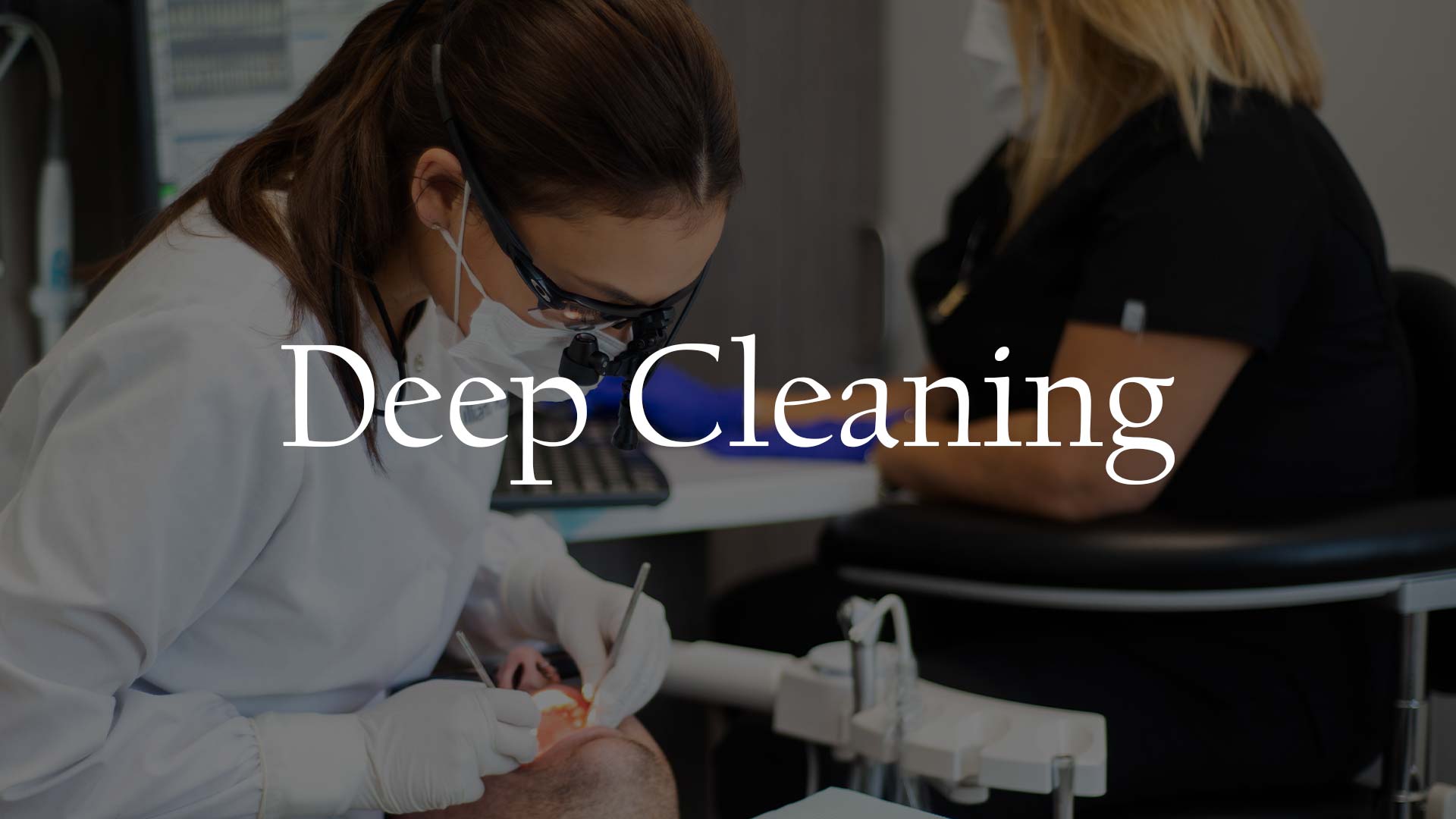
What are the pros of deep cleaning teeth?
- It will help prevent gum diseases.
- Fight bad breath or odor.
- Protect your teeth roots
- Promotes healthy gums and Hygiene
- It prevents tooth and bone loss
You might need Dental Deep Cleaning if gums pull away from your teeth, creating a space larger than 5mm deeper. It may result in teeth loss or weakening of your teeth' bone support.
In such conditions, your dentist recommends a deep dental cleaning, which will help you, including:
- Restrict advancement of gum diseases
- Treatment for current infection promotes better healing
- It cleans your teeth above and below the gum line
- Eliminate bad odor problems caused by gum diseases
- Protecting the roots of your teeth.
Although deep cleaning treats your gum and teeth, dental cleaning has its risks, such as:
- It can cause nerve damage.
- It doesn't guarantee the reattachment of your gums to the teeth
- It may cause receding gums
- You may experience infection if your immune system compromised
- Pain and sharp sensation
- Pain and sensation are the most common side effects of deep dental cleaning but only last 5-7 days; sometimes, they extend to a few weeks.

Conclusion
Deep dental cleaning is a different procedure than routine teeth cleanings. Regular teeth cleaning involves the removal of plaque and tartar buildup from above the gum line. On the other hand, deep dental cleaning consists of removing plaque and tartar below the gumline.
Therefore you should consider visiting a Saturday dentist near me for a regular checkup at least twice a year. If any plaque and tartar are left, they will use deep dental cleaning to remove them.
Article Source : https://www.healthandhealthytips.com/what-are-the-pros-and-cons-of-deep-cleaning-teeth/
- Feel severe tooth pain on chewing or feel pressure on the tooth.
- Prolonged sensitivity or pain in the tooth to hot or cold temperatures even after heat or cold has been removed.
- Noticing any discoloration or darkening of the tooth
- Swelling and tenderness in gums close to the tooth.
- A steady or frequent pimple on the gums.
- Sometimes you may not see any symptoms around.
Root canal therapy requires more than one visit to the Root Canal Dentist near me. A dentist who performs the surgery and diagnoses the disease and injuries of teeth is called an endodontist specialist. Your dentist's choice of who will perform the surgery depends on the condition, what treatment, and the comfort of the dentist to perform the surgery. The dentist should be comfortable with your case. Your dentist will consult and discuss the Best Dentist In Houston to achieve Root Canal Treatment.

The first step:
In the first step of your root canal therapy, your dentist will take an X-ray of your teeth to see the shape of the root canals and determine if there are any signs of infection in the tooth, surrounding bone, or gums. If they find signs of disease, your dentist or endodontist will use local anesthesia to numb the area nearby the tooth to make it painless during treatment. As to tell you that anesthesia may not be necessary as the nerve is dead, but most dentists still anesthetize the area so that the patient can relax, be comfortable, and stay at ease.
The second step:
Now in the next part, your dentist will place a rubber sheet, also called a rubber dam, a square sheet that dentists use to keep the area around your tooth dry and free of saliva during the treatment.
A hole is pierced into the tooth to remove the pulp, bacteria, and debris from the tooth, and this cleaning procedure uses the root canal files to remove the infection. The dentists use these files to scrape and scrub the sides of the root canals. The dentist uses this series of files to work down to the full tooth length and clean the infection. The dentist uses water or sodium hypochlorite periodically to rinse off the debris.
Once the dentist cleans the tooth entirely, it needs to be sealed. Some dentists wait a week or a few days before sealing the tooth. Maybe there is an infection, and your dentist will put medicine inside the tooth to clear it up.
Other dentists may determine to seal the tooth on the same day as the dentist cleans it out. Suppose your dentist does not complete root canal therapy on the same day. In that case, the dentist places a temporary filling in the exterior hole in the tooth to keep impurities out between the following treatment appointments.

In the following root canal therapy appointment, your dentist will place a sealer paste and a rubber compound called gutta-percha into the tooth's root canal to fill the tooth's interior. Your dentist will place the filling on the exterior access of the hole created at the beginning of therapy.
The final step
The final step involves additional restoration of the tooth. It is because a tooth that needs root canal therapy often has a large filling or extensive decay, or other weakness, so to protect the tooth, your dentist will place a crown or other restoration. This prevents it from breaking and restoring it to function fully as usual. Your dentist will discuss the need for any additional dental work with you.
Conclusion :
Visit and Review with youremergency dentist. The dentist open on Saturday will help you decide what is best for you.
Article Source : https://www.articleentry.com/what-are-the-main-signs-that-you-need-a-root-canal-therapy/
Invisalign Treatmentis suitable for most adults and adolescents who want to improve their beautiful smiles. If you want it for your child, talk to your localDentist Open On Saturday, or orthodontist to see if Invisalign treatment suits your youngster.
There is no specific age necessity for utilizing Invisalign for treating your dental issues as an option. Still, it depends on the adulthood of the growth of teeth and their structure in the mouth. With a permanent dental solution, dentists use Invisalign on anyone, whether a child or an adult.
Advantages of Invisalign:
If you want to take advantage of Invisalign, you must place them at a young age if you have misaligned teeth or malformed bites. A person can enjoy their beautiful smile and aligned teeth early. Early treatment with Invisalign also helps boost good dental hygiene and can convert a bad bite and destroy the concerns of malocclusion. If you have straighter teeth, you can properly clean them and prevent cavities and gum disease from developing in the future.
A significant benefit of early Invisalign treatment is that it helps improve appearance at a young age.
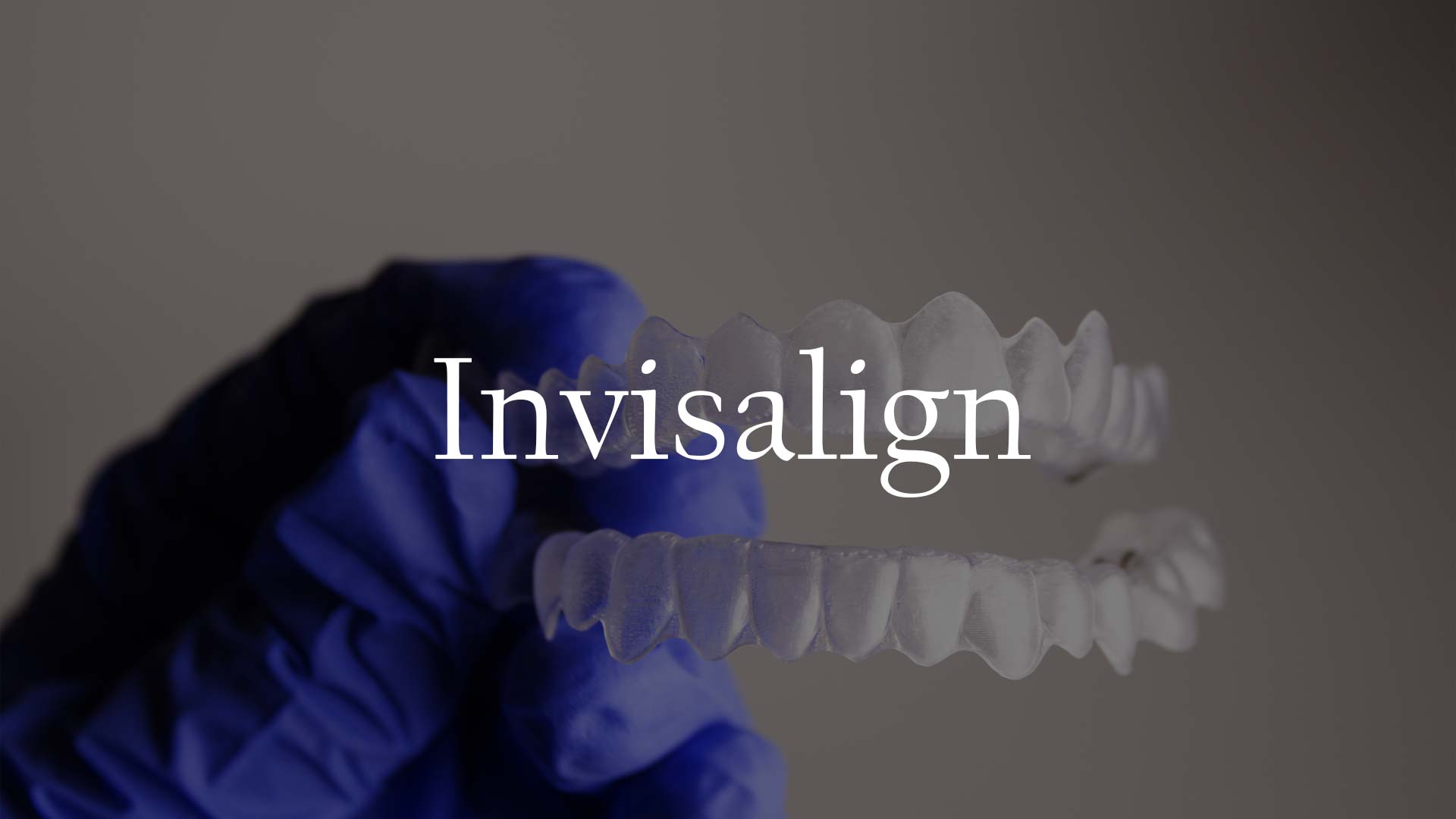
What Dental Issues Can It Fix?
Invisalign can address many of the dental issues corrected by traditional braces. Many Emergency Dentists in Houston suggest using Invisalign in only mild to medium cases of dental problems.
If you want an Invisalign, you should consult an experienced orthodontist to determine whether an irregularity can be treatable with clear aligners.
It states that it fixes problems including:
- Crowded teeth
Crowded teeth are when teeth are twisted or clustered together because of the lack
of space in the mouth.
- Overbite
When upper teeth overlap the lower teeth, it is called an underbite, but a deep bite can cause discomfort, pain, and other problems.
- Underbite
An underbite happens when the lower teeth rest over the upper teeth. Treatment can solve this cosmetic issue of an underbite.
- Crossbite
Crossbite happens when a misaligned jaw causes one or more upper teeth to bite inside the lower teeth.
- Gap teeth
Space between the teeth is the reason for the gap issue.
- Open bite
This causes when the upper and lower teeth don't meet, and this can cause chewing issues.

Have a consultation with Invisalign Near Me:
If you're willing to pay for an Invisalign, you must determine if it is correct. Invisalign is an excellent treatment for cosmetic issues, and you should take medicine from an orthodontist rather than a dentist. You can see many dentists around who are now Invisalign providers. Still, they dont have sufficient knowledge and lack additional training and specialization that orthodontists have and receive an inferior outcome.
Conclusion:
After the placement of Invisalign, you need to visit your orthodontist for a regular checkup. Your orthodontist surgeon will look at whether the treatment is going well.
Your dentist will change the trays as several trays require during treatment to set the teeth' alignment and straighten them completely.
Article Source : https://www.articleaffiliate.com/is-there-a-specific-age-condition-for-getting-invisalign-clear-aligners/
Once you prepare to get dental veneers, you can visit your Top Dentist open near me, and after consulting your dentist, you will be sure about the placement of dental veneers. You should know if you are a good candidate for dental veneers; after that, you can schedule the appointments.
We will talk about the treatment process of getting Porcelain Veneers Houston.
Dental Veneers Consultation Appointment
The first step is getting a set of dental veneers after talking to your personal dentist about the procedure. If your dentist finds you are an appropriate candidate for a dental veneer, the next step will be for x-rays and impressions. Particular cosmetic dentists will take some time from you and discuss the goals each patient looks for with their new set of dental veneers. Then your dentist will show you a series of images to create the how results will look like.
Porcelain veneer design
On the day of getting the dental veneers, your dentist will remove a small part of enamel from each tooth to create a room for the dental veneer to attach to and not restrict the patient's bite. Then your dentist will mold the teeth with that layer of enamel removed, and this mold solidifies and is sent to the lab for dental veneer creation.

Temporary veneers
Until the permanent dental veneers are prepared, your dentist will apply the temporary dental veneers to your mouth.
Placing the permanent porcelain veneers
As soon as the permanent dental veneers are ready, the dentist will apply an acidic gel that dissolves minerals on the tooth's surface. This makes the surface hard so dental veneers can bond with the tooth to solidify. Once the porcelain veneers are set, your dentist will bond the dental veneers to the patient's teeth in minutes by numbing the area and placing the dental veneer.
After the placement, your dentist will ask about your smile and feelings about the dental veneers. Your dentist will adjust the minor adjustments to fit your bites and polish your smile.
Finally, you can leave the office of dental Veneers In Houston, Tx, with self-confidence and a picture-perfect smile.

Recovery and Post-Procedure Care
Dental Veneers are durable and last longer compared to others. Visiting your dentist for regular examinations and dental cleanings.
Brushing and flossing daily to keep your mouth germ-free. Caring after the dental veneer placement is extremely important as your dentist will not repair chipped or fractured porcelain veneers. Your dentist might tell you the costs and time associated with replacing a damaged restoration. Do not chew on complex objects or do not eat hard food as it can damage the dental veneer.
Take Good Care of Your New Smile
Come for regular checkups:
Regular checkups make you aware of any dental issues. You can learn about the signs of developing dental problems by coming in for routine cleanings and checkups. Visit your Veneers Houston office to schedule an appointment with us.
Article Source : https://www.articleslurp.com/what-is-the-procedure-for-obtaining-porcelain-dental-veneers/
Exactly a life of a temporary filling can depend on the person, and sometimes the material dentists use in filling. Temporary dental fillings can break down over time if you do not replace them on time as they are soft and can get damaged and fall out. They can last upto a few months or a few weeks, depending on the care you provide them. You can ask your dentist how long your temporary filling will last and when you should return for the next appointment for permanent fillings.
Eating har dor sticky food can bring its life down quickly. If you have them, you must take good care of them. The dentist fills the filling in your tooth to control your pain and give relief from the unbearable pain and sensitivity in the tooth.
A temporary Dental Filling Procedure can be an excellent option to preserve your teeth from other damage until the next phase of treatment is held. Your dentist will usually place the filling in a single visit, and it is less costly than dental crowns and can restore larger decay areas.

Reason for temporary fillings:
- There are various reasons for having a temporary dental filling. It can be a post-root canal surgery or a crown or filling. While a temporary filling will protect your teeth against most dental problems, the best thing about a temporary filling is that it will ultimately degrade and is not as durable as white and amalgam fillings.
- The essential benefit of a dental filling is breaking the passage of decay, fixing the damaged tooth, and reviving its normal function and appearance.
- Dentists use dental fillings to repair small areas of decay and help prevent further breakdown by providing an obstacle against damaging bacteria.
- A further blessing of using a temporary filling is that they maintain most of the tooth arrangement while your dentist replaces the injured part of your tooth.
Caring For Your Temporary Dental Filling
Temporary dental fillings need a little more care as they are not long-lasting as permanent fillings. You just need to take care of the filling, and you should ensure that it stays in your tooth until you meet the Dentists Open On Saturday Near me for the next appointment.

Your dentist will specify some basic instructions to protect the dental filling from not pulling it, and the dentist may suggest you avoid some sticky and hard eating with that part of your mouth for some time after the session, as a temporary filling takes time to completely dry and set.
Bypass eating on that side of your mouth until you gain permanent filling. Relying on the material, chewing a lot with a temporary dental filling, and hard-to-eat food such as candy, nuts, and ice, can cause the fabric to crack or fall out.
Conclusion:
To avoid such Dental Cavity Filling, you must brush and floss regularly to maintain good oral health. Consult a emergency dentist near meto prevent any damage to your temporary fillings and take good care until you get a permanent one.
Article Source : https://www.articleapprove.com/how-long-do-temporary-dental-fillings-last/
